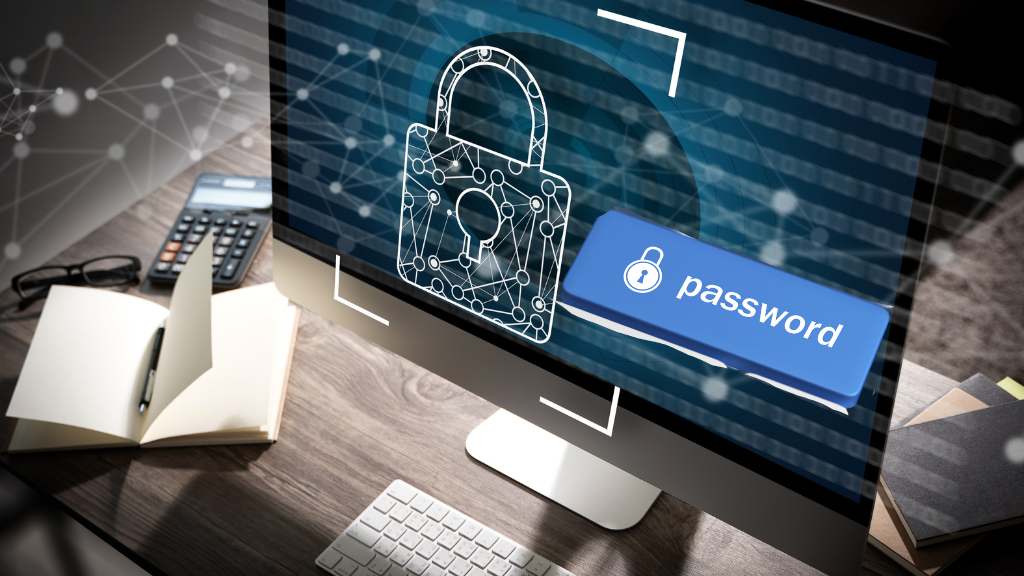In today’s fast-paced world of digital transformation, cybersecurity is a concern that looms large for everyone. Finding the best ways to store passwords offline is of prime importance among the myriad issues we grapple with. This guide aims to be your compass in the complex landscape of password storage, exploring various reliable methods, their pros and cons, and key considerations.
Offline Password Managers: An Overview

When thinking about offline password storage, the first thing that might come to mind is a password manager. These software applications allow you to store, manage, and retrieve all your passwords from one place.
Many people think of password managers as online tools, but plenty of offline options exist. An offline password manager stores your passwords on your device, not in the cloud, giving you complete control.
Best Ways to Store Passwords Offline
Ever wondered what are the best ways to store passwords offline? Well, you’re about to find out. But why offline, you might ask? The answer is simple – security. Offline password storage significantly reduces the risk of exposure to online threats, making it an ideal solution for safeguarding sensitive credentials.
Open Source Password Managers: Your Offline Companion
When it comes to the best open-source password manager, consider options like KeePass and Bitwarden. These password managers are open source, meaning their publicly available codebase enhances transparency and security. Offline open-source password managers are great tools for managing passwords, providing convenience and safety.
Free Password Managers: Cost-Efficient and Effective
Who said good things can’t come free? Plenty of free password managers allow you to manage passwords free of charge. Some of the best free password manager options include KeePass and LastPass. They offer a basic free version and an upgraded version with more features for a fee.
Password Manager Apps: Password Security at Your Fingertips
For those who are always on the go, a password manager app might be just what you need. These apps enable you to get and manage your passwords from your mobile device, making them an incredibly convenient option. They usually come with online and offline modes, so you can choose what suits you best.
Android Password Manager Offline

If you’re an Android user, there’s good news for you. Several Android password manager offline options allow you to store your passwords offline on your Android device. Options like Enpass and SafeInCloud are user-friendly and secure and provide offline access to your passwords.
Best Offline Password Manager for Mac
For Apple users, specific offline password manager options are designed for Mac. One of Mac’s best offline password managers is 1Password, offering an intuitive design, robust security features, and offline accessibility.
Best Free Password Manager for Chrome
Chrome users can benefit from the best free password manager, like Bitwarden or LastPass. These browser extensions can store and autofill your passwords, making browsing more manageable and more secure.
Enpass Offline: A Worthwhile Contender
When talking about offline password managers, it’s hard not to mention Enpass offline. This tool offers robust offline capabilities, allowing you to securely store your passwords on your device.
Offline Device to Store Passwords: Hardware Wallets
Suppose you’re looking for an offline device to store passwords; consider a hardware wallet like Trezor or Ledger. These devices store your passwords offline, on the device itself, providing high security against online threats.
Properly Managing Your Passwords
Proper password management is crucial to maintaining the security of your digital profiles. Below, we will discuss some best practices for managing your passwords.
Creating Strong Passwords

Creating a strong password is the first step toward secure digital life. But what makes a password strong? A mix of letters, numbers, and special characters, along with avoiding common words or sequences, contributes to a strong password.
Never Reuse Passwords
Reusing passwords might be tempting due to the ease of remembering them, but it’s risky. If one account gets compromised, all accounts with the same password are at risk. Always ensure to create unique passwords for each account.
Updating Passwords Regularly
Regularly updating your passwords can help maintain their security. However, keep them the same, which could lead to stronger passwords. A good rule of thumb is to update your passwords every 3-6 months.
Use Two-Factor Authentication
2FA gives an additional layer of protection to your accounts. Even if your password gets compromised, 2FA ensures the intruder can’t access your account without the second factor, usually your phone or fingerprint.
Conclusion
In our increasingly digital world, managing passwords can seem daunting. However, finding the best ways to store passwords offline can provide a perfect solution. From offline password managers, be it open source, free, or specifically designed for your Android or Mac, to hardware wallets, there are various options to explore. Remember, secure passwords are your first line of defense in the digital world, so manage them wisely!
However, managing this on your own can sometimes be overwhelming. If you’re concerned about keeping your online accounts secure and need clarification on handling it all on your own, it may be beneficial to reach out to a professional cybersecurity firm, such as NextdoorSec.
FAQs.1. Which is the most secure way to store a password?
An encrypted password manager with a robust security model is the most secure way.
2. Is it best to store passwords on paper?
It can be secure if kept in a safe location, but it’s less convenient and more susceptible to physical loss or damage than digital methods.
3. What is the best way to organize passwords?
Using a password manager who can categorize and alphabetize passwords is the best way to organize them.
4. What should passwords be stored as?
Digitally, passwords should be stored as hashed and salted data. They should be kept in a secure location or ciphered format for manual storage.
5. Is it safe to store passwords in local storage?
Storing passwords in local storage (like your computer’s hard drive) without encryption is risky, as anyone accessing your device can potentially access them. If stored locally, they should be encrypted and password-protected.
6. Is it safe to store passwords in Chrome?
While Google Chrome has mechanisms to store passwords securely, it is less secure than a dedicated password manager. Anyone with access to the computer and browser could view your passwords. It’s also reliant on your Google account’s security. It’s safer to use a dedicated, encrypted password manager.






0 Comments